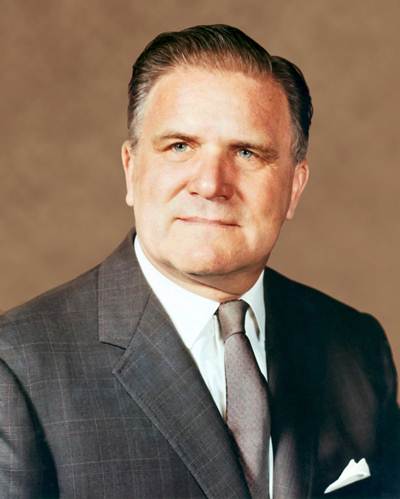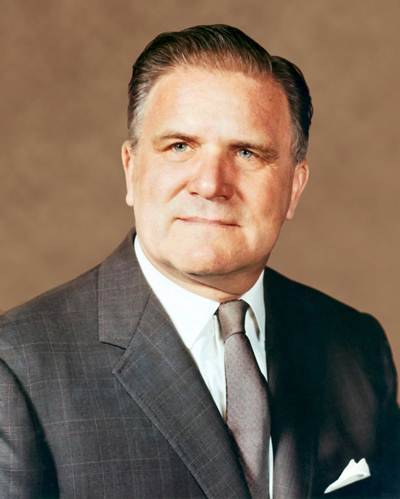NASA is set to launch the large infrared James Webb Space Telescope (JWST) touted as the “premier observatory” of the coming decade later this year. Considered the successor of the Hubble Space Telescope, JWST will study various phases in the history of the universe, from the formation of solar systems to the evolution of our own Solar System.
But before it launches, NASA has an important decision to make — whether to rename the $8.8-billion telescope. These considerations stem from allegations that NASA’s former government-appointed administrator James Webb, after whom JWST is named, had persecuted homosexuals when he had worked for the government.
According to an article published in the journal Nature, NASA does not have a shortlist of names as of now. Bill Nelson, the NASA administrator who is likely to make the final decision, has not said anything on this publicly.
 Former NASA administrator James Webb.
Former NASA administrator James Webb.So, what is this about?
In May, four prominent astronomers —Chanda Prescod-Weinstein, Sarah Tuttle, Lucianne Walkowicz and Brian Nord — launched the petition for a change in name. They had already made their case with an article in Scientific American in March, writing that it was “unfortunate” that “NASA’s current plan is to launch this incredible instrument into space carrying the name of a man whose legacy at best is complicated and at worst reflects complicity in homophobic discrimination in the federal government”.
They wrote that Webb (1906-92) purged LGBT individuals from the workforce after he arrived at NASA in 1961 (he served until 1968). This was then federal policy, “which was a forerunner to the antigay witch hunt known today as the lavender scare”, according to the astronomers, who have written that Webb was aware of this as early as 1950.
In 2016, archivist Judith Adkins wrote that as part of “Lavender Scare” thousands of gay employees were fired or forced to resign from the federal workforce because of their sexuality. It was during this time that Webb started his career with the US government in the late 1940s, prior to joining NASA. When Webb was administrator, NASA launched over 75 space science missions, including probes that were sent to Mars and Venus.
As per NASA, Webb “did more for science than perhaps any other government official and… it is only fitting that the Next Generation Space Telescope would be named after him”.
Do other scientists agree with the four petitioners?
Not all astronomers seem to agree with the four who have started the petition. It has triggered a debate, nevertheless. Those not in favour of renaming believe that either there is not enough evidence to implicate Webb, or that the window to do so has passed.
The debate marks a rare instance of astronomers making a political statement. Another recent example is from ornithology in the US, where some scientists have sought the renaming of birds named after people linked to racism, slavery and White supremacy. Here, too, ornithologists are divided, because some of them believe that changing names of birds would lead to confusion, and that it is akin to erasing an important part of history.







